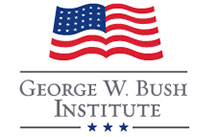 Could the United States upgrade democracy promotion as part of a broader response to heightened geopolitical competition? The Trump administration might, for example, try to use democracy assistance to counter China and Russia’s ‘sharp power’ efforts to gain political influence, Carnegie analysts Thomas Carothers and Frances Z. Brown suggest.
Could the United States upgrade democracy promotion as part of a broader response to heightened geopolitical competition? The Trump administration might, for example, try to use democracy assistance to counter China and Russia’s ‘sharp power’ efforts to gain political influence, Carnegie analysts Thomas Carothers and Frances Z. Brown suggest.
One modest indication of a policy shift toward geopolitical competition is the emphasis by U.S. Agency for International Development (USAID) Administrator Mark Green on the “clear choice” that developing-world counterparts face between funding their development on China’s economic terms or through partnership with the United States. But such a larger shift is highly uncertain, they contend:
Moreover, even if  competition with Russia and China does become a more dominant orientation of U.S. foreign policy in the next few years, it may actually reduce rather than bolster the U.S. emphasis on democracy promotion. Such competition may intensify the lingering Cold War habit in which the United States becomes more forgiving of undemocratic allies for the sake of maintaining security partnerships.
competition with Russia and China does become a more dominant orientation of U.S. foreign policy in the next few years, it may actually reduce rather than bolster the U.S. emphasis on democracy promotion. Such competition may intensify the lingering Cold War habit in which the United States becomes more forgiving of undemocratic allies for the sake of maintaining security partnerships.
With renovation of U.S. democracy policy still an uncertain and distant prospect, those committed to making the United States a net contributor to global democracy must focus for now on policy survival, Carothers and Brown add, highlighting a number of priorities:
SUSTAINING PRO-DEMOCRACY DIPLOMACY
 Highlight public support. In 2018, the George W. Bush Institute, Freedom House, and the Penn Biden Center found that 71 percent of Americans support the U.S. government “taking steps to support democracy and human rights in other countries.” By communicating this notable (and underappreciated) level of support, research and advocacy communities can encourage legislators and other policymakers to continue resisting administration efforts to slash democracy aid and broader international affairs spending. ….
Highlight public support. In 2018, the George W. Bush Institute, Freedom House, and the Penn Biden Center found that 71 percent of Americans support the U.S. government “taking steps to support democracy and human rights in other countries.” By communicating this notable (and underappreciated) level of support, research and advocacy communities can encourage legislators and other policymakers to continue resisting administration efforts to slash democracy aid and broader international affairs spending. …. Push for the restoration of government positions and capacities essential to democracy work….. Specific priority areas include confirming the administration’s nominee for assistant secretary of state for democracy, human rights, and labor and filling key supporting roles, as well as restoring democracy-focused positions at the National Security Council.
Push for the restoration of government positions and capacities essential to democracy work….. Specific priority areas include confirming the administration’s nominee for assistant secretary of state for democracy, human rights, and labor and filling key supporting roles, as well as restoring democracy-focused positions at the National Security Council.- Draw attention to key country cases where democracy has a window of opportunity to make progress or is especially at risk, and underline the value of U.S. engagement with them. For example, political openings, or at least signs of them, in Armenia, Ecuador, Ethiopia, the Gambia, Malaysia, and Uzbekistan, as well as critical junctures in the Democratic Republic of the Congo and Nigeria, may merit closer U.S. engagement.
 Don’t neglect “democracy capital” created during earlier administrations. Some signature democracy initiatives launched under the Obama presidency carry on with more low-key U.S. participation, such as the Open Government Partnership and the Young Leaders’Others, such as the Stand with Civil Society Initiative, seem dormant at least in branded form. ……
Don’t neglect “democracy capital” created during earlier administrations. Some signature democracy initiatives launched under the Obama presidency carry on with more low-key U.S. participation, such as the Open Government Partnership and the Young Leaders’Others, such as the Stand with Civil Society Initiative, seem dormant at least in branded form. ……
ENCOURAGING POLICY INNOVATION
- Encourage Congress to explore creative ways of using its own authorities to support democracy, beyond the important role of holding the line on budgets. On a symbolic level, legislators should consider increasing their number of meetings with pro-democracy activists from abroad to signal support, taking up some of the role that the White House historically has played in demonstrating U.S. support for democratic principles. …
CHANGING THE CONVERSATION
 Inform debates about rising ideological competition with China and Russia by underscoring that the United States should not sacrifice considerations of democracy for the sake of strengthening ties with autocrats. Provide suggestions for ways in which USAID’s “Clear Choice” initiative can encourage democratic citizen-centered governance principles, in addition to a better deal economically.
Inform debates about rising ideological competition with China and Russia by underscoring that the United States should not sacrifice considerations of democracy for the sake of strengthening ties with autocrats. Provide suggestions for ways in which USAID’s “Clear Choice” initiative can encourage democratic citizen-centered governance principles, in addition to a better deal economically.- Develop a more positive but still realistic counternarrative on global democracy that acknowledges the many problems that democracy is facing but presents a more balanced picture than the burgeoning global doom-and-gloom accounts. The democracy support community should highlight the emergence of various democratic advances around the world, the notable success of anticorruption protests and legal action in driving positive political change, the indispensability of democracy for achieving broad respect for human rights, and the difficulties many authoritarian regimes face in delivering basic goods and services.







